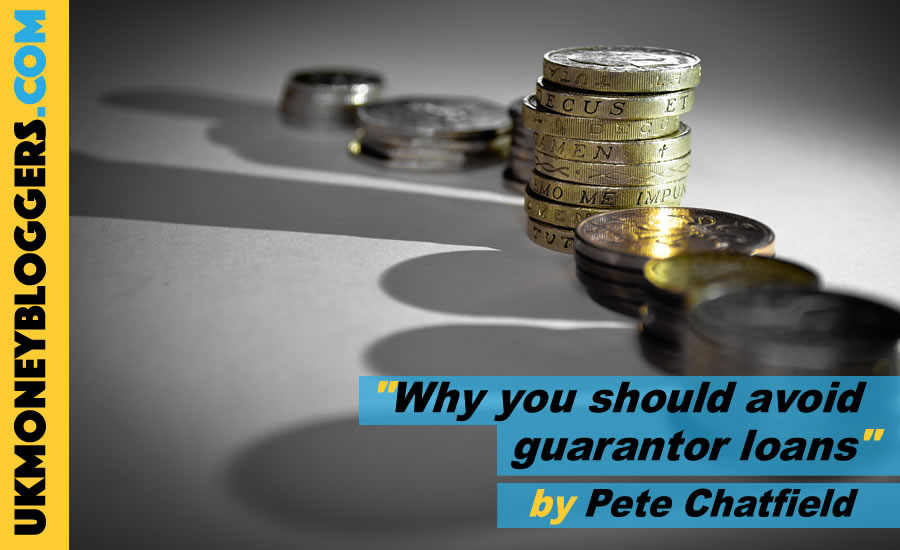This week’s Loose Change comes from Pete Chatfield, who blogs at Household Money Saving about saving money, making money and also reviews the latest money related apps.
Looking for a loan but have a bad credit rating? Then a guarantor loan could be the answer, or so the lenders claim. Or maybe not…
Plenty of people suffer setbacks in their finances at some point in their life. If your credit rating takes a hit, then it becomes harder and more costly to borrow money. You may know that you’re able to make that monthly payment, but the bank doesn’t trust you. So what other options are there?
A guarantor loan
A guarantor loan, in principle, sounds like a great option. Somebody you know tells the bank that you’re good for the money, signs some paperwork and you get that much-needed cash injection. Everybody’s happy. Unfortunately, life isn’t that simple.
What that signature means
If you read a lot of money advice forums, you’ll find many guarantors thought they were acting as a character reference. “Yes, my friend will pay they loan back, no problem.” However, that signature means far more. The moment a guarantor signs on the dotted line, it means one thing… they are responsible for the loan.
The applicant may be the person receiving the money, but here is the worrying truth. If they fail to make a payment, the loans company won’t bother chasing them. After all, they weren’t confident the applicant could make the payments in the first place. No, they will head for the guarantor. They are seen as the person who is better off and so are a far easier target.
Are they good value for money?
You may think that with potentially two people who are able to make payments, loan companies may offer a competitive interest rate. Well no. Quite the opposite in fact.
Guarantor loans generally come with an interest rate of anything over 40%. Now when you consider that many companies offer a loan around the 3-10% mark, this is incredibly high.
Compare the cost of a £4000 loan over three years:
- Sainsburys charge 9.8% (17/04/17) and paying over three years will cost you £127.92 per month.
- Alternatively, you could choose Amigo. They charge 49.9% and the same amount borrowed will cost you £195.16 per month. Now that’s 50% more every month!
- Over three years the loan from Sainsburys will cost you £4605.12, but choosing Amigo will cost you £7025.76.
So no good points?
If you’re desperate to find some good out of all this, then a guarantor loan is a way to improve your credit rating. It is a very expensive method, and if this is your intention, then you should look at taking out a credit card instead! As long as you make sure you pay the credit card off in full each month, you can improve your rating at little or no cost. Head over to Money Supermarket to find the best card for you.
The better alternatives
I hate to preach, but if you are in a situation where mainstream lenders are unwilling to lend you money, there’s generally a good reason. If you can help it, try to steer clear of borrowing money.
But, if you really need to borrow, my advice would be to avoid guarantor loans completely. They are far too expensive and I’ve read many stories where friends and family have fallen out.
I also think that asking someone to act as your guarantor puts undue pressure on them.
If somebody wants to help a friend or family member out financially, then that decision should come from them alone. The best option would be for them to take out a loan in their name at a lower rate and then to transfer the money to their friend. It would then be advisable for a payment agreement to be made and put into writing. For more information on lending between friends and family, I strongly recommend you visit the Net Lawman.
That said, my main tip for lending money is to avoid it at all costs. However, if you must, lend only as much as you can afford to lose.
And in case the title of this post wasn’t quite clear… If you are thinking about taking out a guarantor loan. Don’t!

